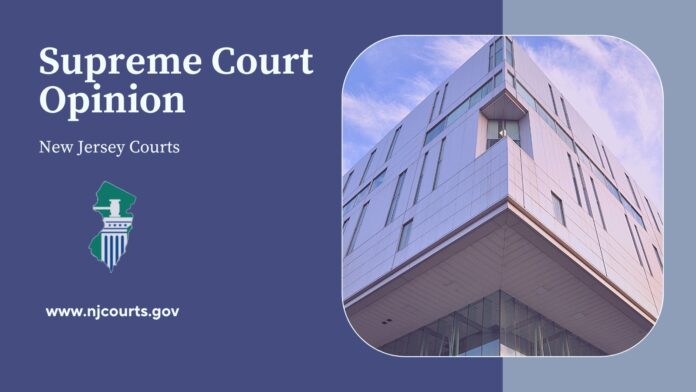The Supreme Court of New Jersey has issued a significant ruling that reshapes how lower courts evaluate prosecutorial decisions under the state’s Graves Act. In State v. Delshon J. Taylor, Jr. (decided August 6, 2025), the Court unanimously determined that the correct standard for reviewing a prosecutor’s refusal to grant a Graves Act waiver is “abuse of discretion,” not the stricter “patent and gross abuse of discretion” standard that had been previously applied by some courts.
Justice Fabiana Pierre-Louis, writing for the unanimous Court, explained that while deference to prosecutors remains central, a lower threshold for judicial review ensures that decisions tied to sentencing under the Graves Act remain subject to meaningful oversight. The decision marks the first time the Court has directly clarified the appropriate standard for waiver denials under this statute.
The case originated from a 2017 incident in which police responded to reports of gunfire and encountered defendant Delshon J. Taylor, Jr. Taylor fled from officers and, during the chase, discarded a semi-automatic handgun loaded with hollow-point bullets. He was arrested and later charged with multiple firearm-related offenses, including unlawful possession of a weapon and possession for an unlawful purpose—both covered by the Graves Act.
The Graves Act mandates severe penalties for specific firearm offenses, including a parole ineligibility period of either 42 months or one-half of the sentence, whichever is greater. However, it also provides prosecutors with limited discretion to request a waiver, sometimes referred to as an “escape valve,” that can reduce the mandatory parole ineligibility period to as little as one year.
Taylor applied for such a waiver, but the prosecutor’s office denied the request, citing the seriousness of the conduct. The denial letter noted that Taylor had concealed and then discarded a loaded handgun in public, putting officers and bystanders at risk. Despite Taylor’s lack of prior adult convictions, the State concluded that granting a waiver would be inconsistent with the very purpose of the Graves Act.
Taylor later pled guilty to second-degree unlawful possession of a weapon. At sentencing, his defense counsel challenged the waiver denial, arguing that the trial court should assess the prosecutor’s decision using a standard of “abuse of discretion” rather than the heightened “patent and gross abuse of discretion” standard, which places an almost insurmountable burden on defendants. The trial judge ultimately ruled against Taylor, finding no basis to override the prosecutor’s decision. The Appellate Division affirmed, relying on existing precedents.
The Supreme Court’s ruling reversed that outcome, holding that waiver denials must be reviewed under the more accessible abuse of discretion framework. The justices emphasized the distinction between prosecutorial decisions related to sentencing—which are closely tied to the judiciary’s constitutional role—and decisions rooted in executive discretion, such as whether to prosecute a case or allow entry into a diversionary program like pretrial intervention (PTI). The Court reasoned that because Graves Act waivers directly affect sentencing, they should be subject to the same standard of review that applies in other sentencing-related contexts.
Justice Pierre-Louis explained that abuse of discretion review still affords prosecutors considerable deference, requiring defendants to prove “clearly and convincingly” that a decision was arbitrary, capricious, or unreasonable. However, the ruling ensures that trial courts can meaningfully intervene when prosecutorial discretion over sentencing crosses the line into unfairness.
The decision not only impacts Taylor’s case—which was remanded for reconsideration—but also clarifies a point of law that has caused uncertainty in New Jersey’s courts for years. By formally distinguishing between sentencing-related prosecutorial discretion and purely executive decisions, the Supreme Court has provided a roadmap for judges, lawyers, and defendants navigating Graves Act waiver disputes.
This ruling arrives at a time when questions of prosecutorial authority and sentencing fairness continue to generate debate in New Jersey politics and across the nation. The balance between giving prosecutors broad discretion and ensuring fairness in sentencing remains a complex issue. For readers interested in broader discussions about how legal and political developments shape New Jersey’s justice system, additional insights can be found through state politics coverage.
The Taylor decision underscores how one defendant’s case can have a far-reaching impact on the state’s legal landscape, influencing not only future waiver requests but also how courts understand the boundaries of prosecutorial power in sentencing. For defendants facing Graves Act charges, the ruling provides a more accessible path to challenging waiver denials, though the standard still sets a high bar.












